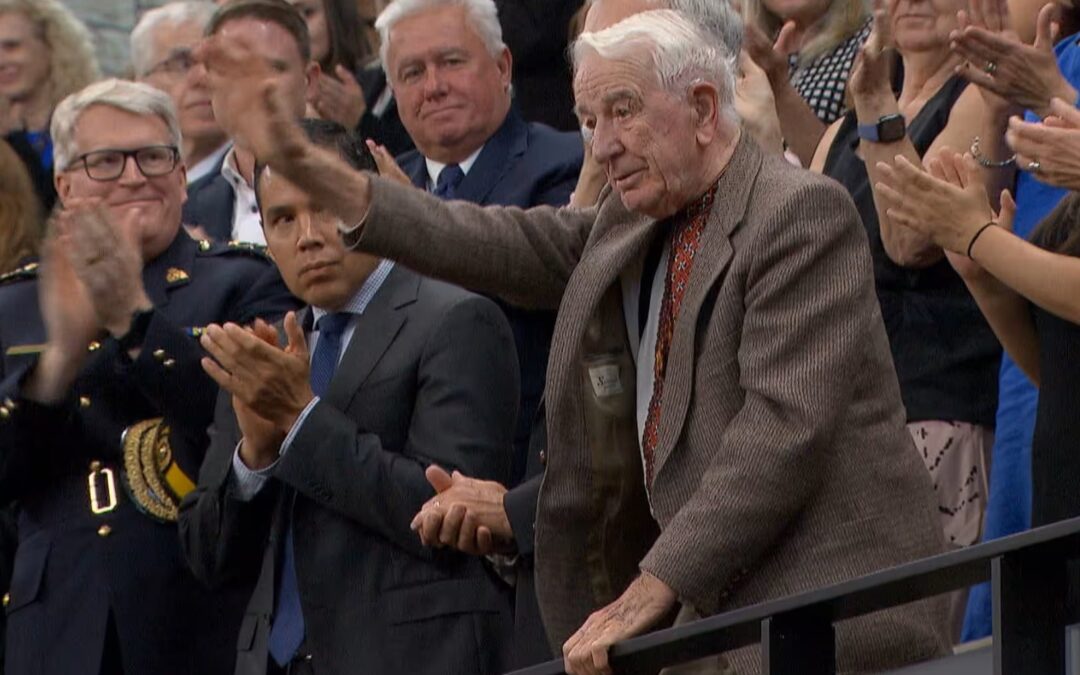Honestly, the whole thing is a bit unfair. I have barely been Canadian for five minutes and now I need to figure out what exactly is going on in the Canadian Parliament. We—we! I’m Canadian!—are inviting Nazis to our government meetings now?
Yes, as this publication’s coverage from the past week may have alerted you, the Canadian Parliament—including Prime Minister Justin Trudeau, with a guest appearance by Ukraine’s President Volodymyr Zelensky, recently gave a hero’s welcome to a 98-year-old (ex-?) Nazi. A sort of epic memo-missing led a room full of political leaders to applaud someone they thought of as representing Ukraine’s righteous struggle against Russian invasion, but who, well… history’s complicated. Who fought the Soviet Union in the Second World War? Anyone? Anyone? (In “Bueller, Bueller” voice.)
Oh right. Oops.
There will now be much discussion of reckonings, but something even more basic may be in order. In her Globe and Mail column on the “debacle,” Marsha Lederman points to a lapse in historical knowledge, and is, I think, onto something:
“If there’s any lesson to come out of this sad event, perhaps it’s that learning a bit of history can protect us—and from things much more significant than personal embarrassment or political vulnerability. In Ontario, Holocaust education has become mandatory for grade six students. I think there are some older folks who could use a history lesson as well.”
Yes, as David Frum told Avi Finegold and me on the Bonjour Chai podcast, the major players in the Second World War are taught in middle school. It should be common knowledge, but is it? Surveys not just of Holocaust knowledge but also the Second World War more generally show that not much background can be assumed. A British History network survey found “an alarming 1 in 10 (10 percent) had no idea Adolf Hitler was involved in World War Two with some even believing Germany and Britain were on the same side (8 percent).”
It does not appear that Canada—or modern-day Ukraine, for that matter, whose president is Jewish—is actually secretly run by Nazis. The issue would more seem to be that whatever 98-year-olds were up to in their youth, it was so long ago that no one bothers to look into it. After all, once all the books from before 2008 are out of circulation, there’s really no telling what happened in the 1930s or 1940s.
It’s important not to confuse the fact of time progressing with Holocaust denialism. For people of roughly my age (I’m 40), school meant that when high school teachers had had enough of us that week, they could wheel in a bulky television set on one of those carts and show us a movie about the First or Second World War. We knew people who’d been alive during one or both of those wars. If someone born in 2050 fails to know any Holocaust survivors personally, this tells you nothing about their attitudes.
When I learned the significance of the Holocaust—in Hebrew school? In school-school?—it was emphasized that this had happened recently, to people whose lives basically resembled our own. And this is how it felt. Whereas it would not be surprising if a kid growing up today, even a Jewish one, saw the Second World War as ancient history. Nor would it be a sign of indifference to Jewish history if their reference point for mass death was the Covid pandemic, which they actually lived through.
All of this points to the necessity of teaching history effectively. Which is to say, maybe there needs to be less hand-wringing over whether everyone can construct a detailed timeline (with the inevitable scoffing when surveys reveal they cannot), and more emphasis on the background story of different communities and populations. I’m not offended if some 20-year-old cannot name a single death camp, or is fuzzy about 1942 versus 1943. But it’s necessary to explain who we all are and what’s in our histories.
To do this, we will need better history education, sure, but also to move away, asap, from the phenomenon of treating all cultural artifacts from more than five minutes ago as problematic and therefore worthless. Not as a substitute for factual knowledge, but as an indispensable supplement. There’s nothing like a novel or movie to make history come alive. We have these windows into the past, if only our attention spans and sensitivities allow us to look through them.
In any case, if you are interested in a history lesson, or in spending a couple hours gazing at a young Lior Ashkenazi, you could watch Walk on Water, a 2004 movie about a not dissimilar scenario.
The CJN’s senior editor Phoebe Maltz Bovy can be reached at [email protected], not to mention @phoebebovy on Bluesky, and @bovymaltz on the website formerly known as Twitter. She also holds forth on The CJN’s weekly podcast Bonjour Chai.










